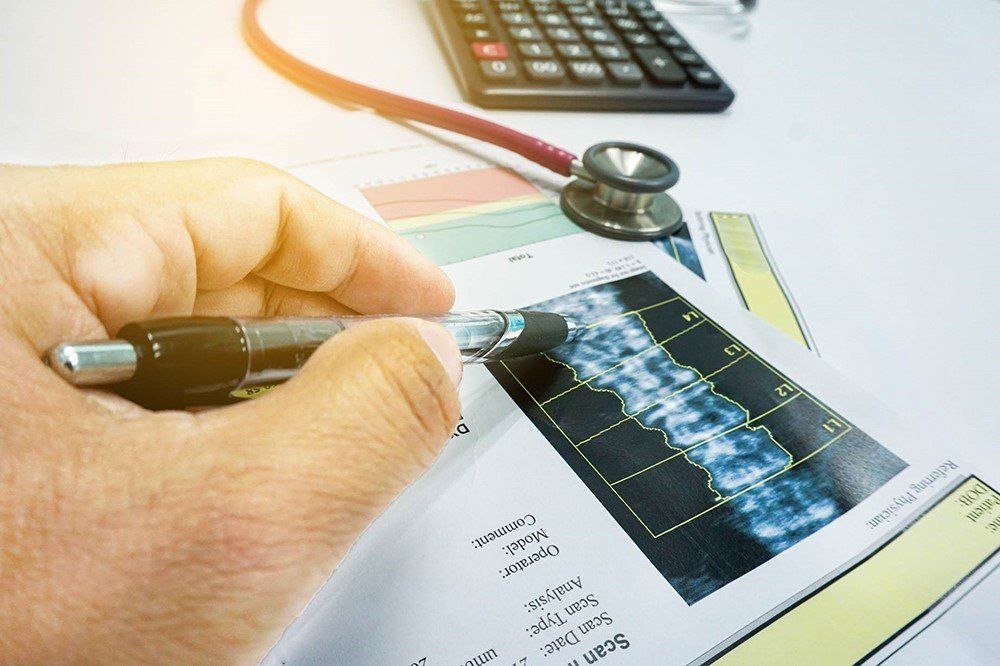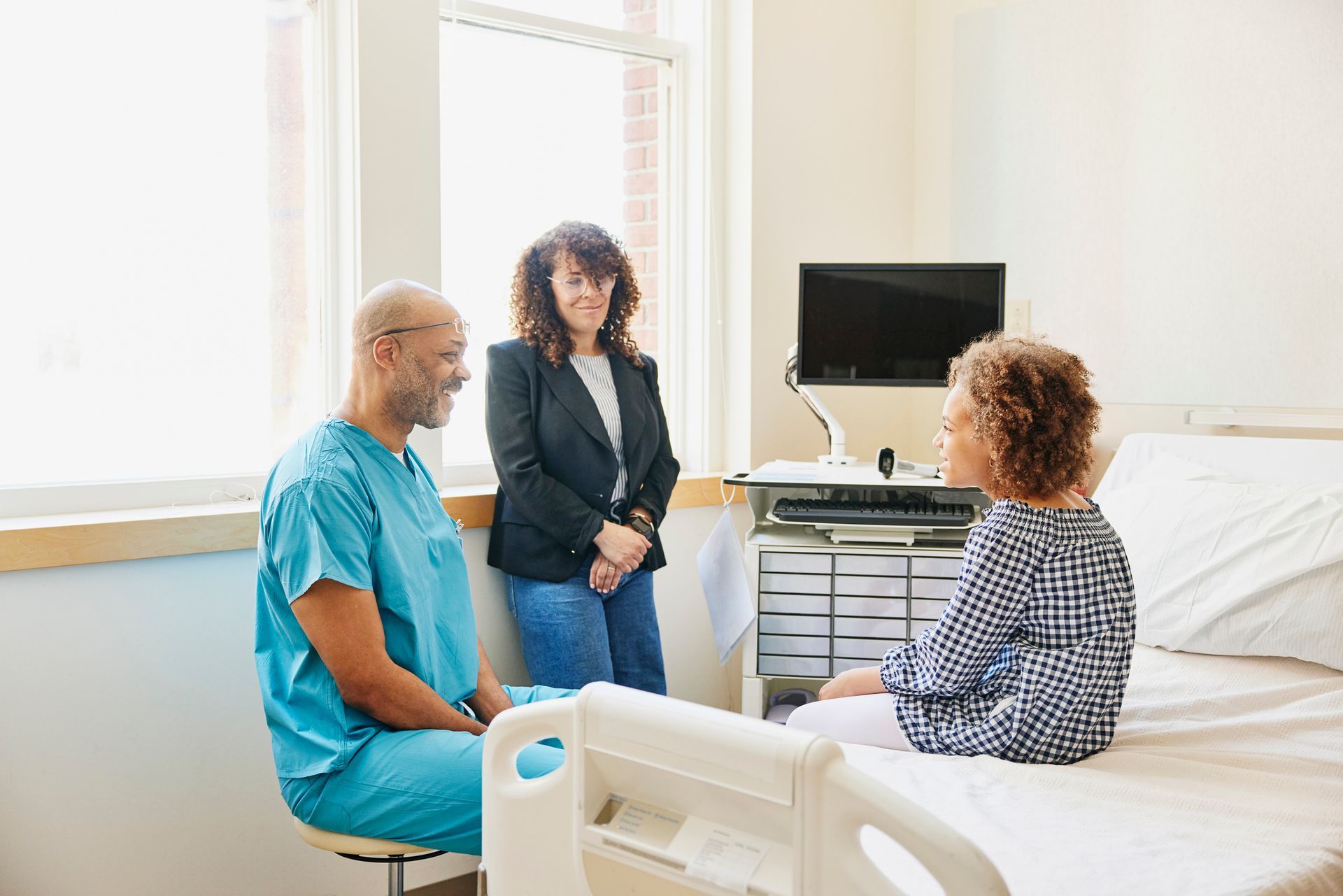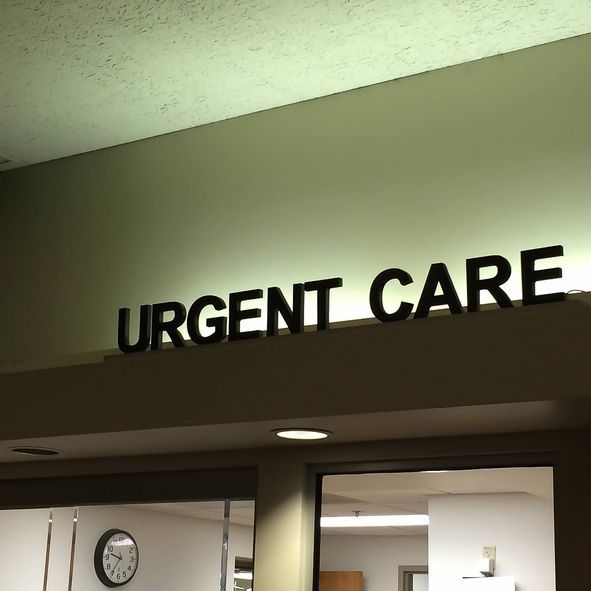Dexa Bone Density Scan in Lancaster, CA
Bone Density Scan in the Antelope Valley

What is a Bone Density Dexa Scan?
Bone density scanning, also called dual-energy x-ray absorptiometry (DXA) or bone densitometry, is an enhanced form of x-ray technology that is used to measure bone loss. DXA is today's established standard for measuring bone mineral density (BMD).
DXA is most often performed on the lower spine and hips. In children and some adults, the whole body is sometimes scanned. Peripheral devices that use x-ray or ultrasound are sometimes used to screen for low bone mass, mostly at the forearm
Why is a Bone Density Scan Recommended?
DXA is most often used to diagnose osteoporosis, a condition that often affects women after menopause but may also be found in men and rarely in children. Osteoporosis involves a gradual loss of bone, as well as structural changes, causing the bones to become thinner, more fragile and more likely to break.
DXA is also effective in tracking the effects of treatment for osteoporosis and other conditions that cause bone loss.
The DXA test can also assess an individual's risk for developing fractures. The risk of fracture is affected by age, body weight, history of prior fracture, family history of osteoporotic fractures and lifestyle issues such as cigarette smoking and excessive alcohol consumption. These factors are taken into consideration when deciding if a patient needs therapy.

Bone density testing is strongly recommended if you:
- are a post-menopausal woman and not taking estrogen.
- have a personal or maternal history of hip fracture or smoking.
- are a post-menopausal woman who is tall (over 5 feet 7 inches) or thin (less than 125 pounds).
- are a man with clinical conditions associated with bone loss, such as rheumatoid arthritis, chronic kidney or liver disease.
- use medications that are known to cause bone loss, including corticosteroids such as Prednisone, various anti-seizure medications such as Dilantin and certain barbiturates, or high-dose thyroid replacement drugs.
- have type 1 (formerly called juvenile or insulin-dependent) diabetes, liver disease, kidney disease or a family history of osteoporosis.
- have high bone turnover, which shows up in the form of excessive collagen in urine samples.
- have a thyroid condition, such as hyperthyroidism.
- have a parathyroid condition, such as hyperparathyroidism.
- have experienced a fracture after only mild trauma.
- have had x-ray evidence of vertebral fracture or other signs of osteoporosis.

How is a DEXA Scan measured?
Your T-score refers to the amount of bone you have in comparison to an individual at peak health and bone density. Most often, young adults are the source of comparison here– just because they are most likely to be in optimal health. This doesn’t mean that you need to compare yourself to them in other ways– it’s just the standard for medical comparisons.
A Normal T-Score
…Is a value of -1 or higher. If your T-score is between -1.1 and -2.4, you will be diagnosed with osteopenia, a medical condition that refers to a patient having low bone density. Scores lower than -2.4 fall into the category of osteoporosis, or bone disease. The lower your T-score, the higher your risk for bone fractures.
Z-Score
Your Z-score, on the other hand, compares your results to other patients of the same size and gender within your age group. This number provides a comparative analysis of how you compare to your peers. This number can be helpful in determining what types of treatments you may be able to pursue, and the extent to which they may be effective. Furthermore, if your test results are extremely abnormal for your group, your doctor may want to look at root causes, as there may be an underlying complication or condition causing your bone mass to be so different.
A Normal Z-Score
Is within significant ranges for your gender, age, and size group. If you fall well outside the normal bounds for this group, your doctor will request more tests and help you find out what is amiss.
What Is A “Normal” Bone Density?
As mentioned above, a normal bone density rating is above -1.0. A number in this range indicates that your bones are a healthy density, having enough physical structure to protect themselves from unnatural physical damage.
Is there treatment for Osteoporosis?
Speak with your provider about treatment options available. Healthy living with proper nutrition is recommended, and based on individual assessments, weight bearing exercises may be recommended. There are several medications available and recommended based on your individual needs.
To schedule your Medicare Annual Wellness Visit, call Family First Family Medical Practice at 661-341-3800.
Visit Family First Family Medical Practice by clicking on the following link www.familyfirstmedgroup.com
To learn more about our providers, click on the following link below:
https://www.familyfirstmedgroup.com/providers
We are currently open to new patients.
Appointments can be made by calling 661-341-3800.






